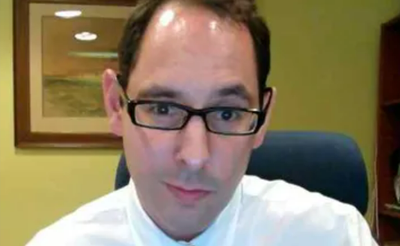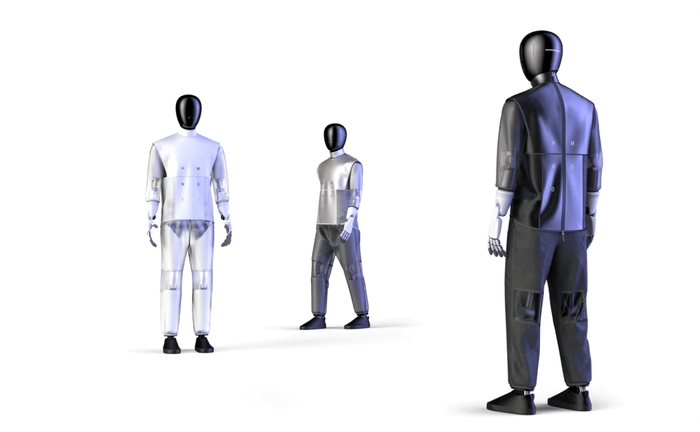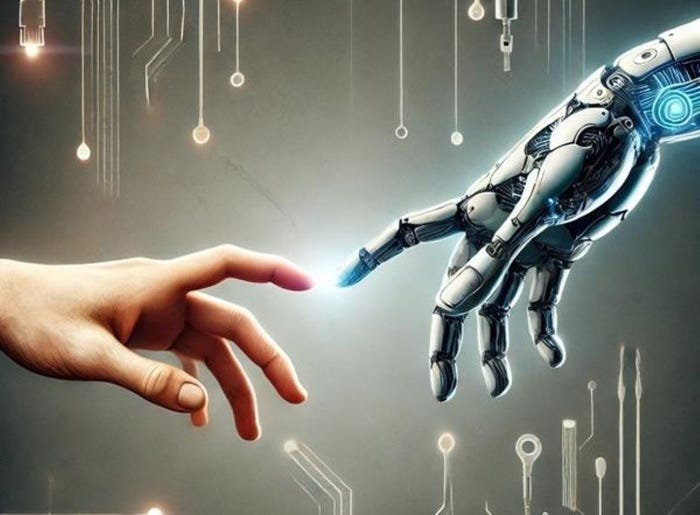AI Boosts Gene Mutation Discovery In Search For CuresAI Boosts Gene Mutation Discovery In Search For Cures
Google DeepMind researchers used AI to detect mutations in human DNA. The new technique could lead to cures
October 2, 2023

A new AI technique could help uncover the genetic basis of diseases and lead to better treatments.
Researchers from Google DeepMind used AI to identify mutations in human DNA that can potentially cause diseases. The research team said in a recent paper that about 89% of crucial mutations had been found. Scientists hope the advances will allow for faster diagnosis of diseases.
"The DeepMind tool assesses how changes at each missense variant of every human protein affect protein structure, saving immense experimental effort," said William Letsou, an assistant professor of Biological and Chemical Sciences at the New York Institute of Technology, who was not involved in the research, in an interview. “The alternative to DeepMind's variant pathogenicity tool is to generate and crystallize each variant of a protein and look for gross structural alterations. ... Not only is the experimental work costly and time-consuming, but there are thousands of potential variants to try for each protein."
The DeepMind program predicts missense mutations when one letter in the DNA code is wrong. The mutations can disrupt the function of proteins.
The team used an AI model called AlphaMissense to examine all 71 million possible single-letter mutations impacting human proteins. Setting the program's accuracy to 90%, it estimated that 57% of missense mutations were likely benign, and 32% were probably detrimental. The effects of the remaining mutations were uncertain.
“Molecular biologists could use the database as a starting point for designing and interpreting experiments that probe saturating amino acid substitutions across the human proteome,” the study authors wrote in their paper.
Rare DNA mutations likely cause rare diseases and DNA mutations can be classified into those that either do or do not lead to changes in the encoded protein, Letsou said.
“The first place to search for disease-causing variation is these so-called missense variants that potentially affect how the protein functions,” he added. “However, there is a reason these deleterious variants are so rare: evolution has selected against them. Since we see these variants only rarely in humans, a database of the potential pathogenicity of each one could help us predict an individual's risk for rare diseases early in life and give us time to intervene.”
Based on their research, the scientists have compiled a free online list of their predictions. This database is intended to help doctors and geneticists look into how mutations lead to diseases or try to diagnose people with rare disorders. Yet, they are not making the entire model available for direct download due to potential biosecurity concerns when analyzing non-human species' genes - which could enable the creation of a bioweapon.
“As part of our commitment to releasing our research breakthroughs safely and responsibly, we will not be sharing model weights to prevent use in potentially unsafe applications,” the authors wrote in their paper.
From Proteins to DNA
A decade ago, Google bought DeepMind, an AI research lab known initially for AI that plays games like Go and eventually got so good it beat world champion Lee Sedol in 2016. It made a big splash in medicine when its AI model, AlphaFold, could guess protein shapes, a massive deal in biology, Steve Frank, the founder of the AI-powered medical technology company Med*A-Eye, said in an interview.
“For example, suppose you want to block the action of an enzyme that's overactive due to a disease condition,” he added. “If you know what the 'reaction pocket' (or the sweet spot) of the enzyme looks like, which you do now thanks to AlphaFold, you can design a small-molecule drug that fits snugly into the pocket and thereby excludes the enzyme's usual target. Bingo -- you've cured or at least controlled the disease.”
Analyzing gene sequences is not the only way to identify harmful genetic mutations, Frank noted. Sometimes, you can use AI to explore a medical image to determine a patient's genetic variant.
“If you're acquiring this image anyway, getting this extra information saves the need for an expensive genetic or immunohistochemical test,” he added. “Med*A-Eye Technologies has developed a tool that analyzes colorectal biopsies for the presence of cancer as well as its genetic subtype. This extra information is critical for therapy since different treatments are appropriate for the different molecular subtypes. Getting this information directly from the biopsy image saves time and resources.”
DeepMind's tool builds on previous AI techniques for predicting mutations but is unique in its use of structural information, Letsou noted. He said AI models aim to determine if a DNA variant is likely to be observed in humans.
“The rarer the variant, the more likely it is to be deleterious because evolution will have likely purged it from the population,” he added. “While the first such AI tools compared human proteins to a database of other proteins to learn the 'alphabet' of likely building blocks, the DeepMind tool starts with the predicted structure and detects pathogenic variations from that structure based on what it has learned from training data.”
This article first appeared on IoT World Today's sister site AI Business.
About the Author
You May Also Like







